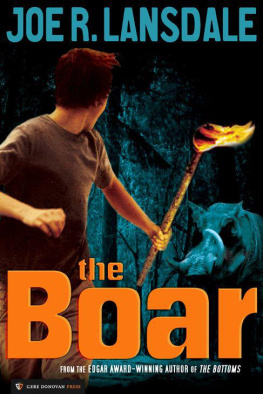Joe R. Lansdale - Flaming London
Here you can read online Joe R. Lansdale - Flaming London full text of the book (entire story) in english for free. Download pdf and epub, get meaning, cover and reviews about this ebook. year: 2006, publisher: Subterranean Press, genre: Detective and thriller. Description of the work, (preface) as well as reviews are available. Best literature library LitArk.com created for fans of good reading and offers a wide selection of genres:
Romance novel
Science fiction
Adventure
Detective
Science
History
Home and family
Prose
Art
Politics
Computer
Non-fiction
Religion
Business
Children
Humor
Choose a favorite category and find really read worthwhile books. Enjoy immersion in the world of imagination, feel the emotions of the characters or learn something new for yourself, make an fascinating discovery.
- Book:Flaming London
- Author:
- Publisher:Subterranean Press
- Genre:
- Year:2006
- Rating:5 / 5
- Favourites:Add to favourites
- Your mark:
- 100
- 1
- 2
- 3
- 4
- 5
Flaming London: summary, description and annotation
We offer to read an annotation, description, summary or preface (depends on what the author of the book "Flaming London" wrote himself). If you haven't found the necessary information about the book — write in the comments, we will try to find it.
Flaming London — read online for free the complete book (whole text) full work
Below is the text of the book, divided by pages. System saving the place of the last page read, allows you to conveniently read the book "Flaming London" online for free, without having to search again every time where you left off. Put a bookmark, and you can go to the page where you finished reading at any time.
Font size:
Interval:
Bookmark:
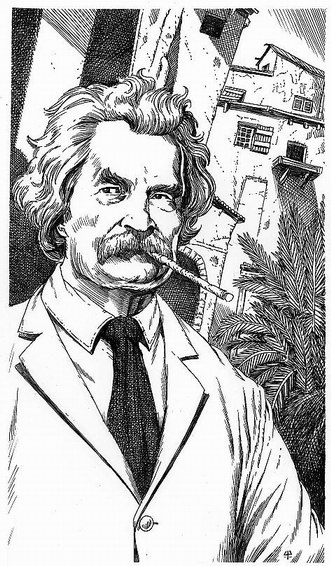
Mark Twain
Before my career as a best selling novelist, I lived an active life. I knew Captain Bemo, Doctor Momo, Buffalo Billstill my heroAnnie Oakleya peach of a womanWild Bill Hickoka man's man... well, a seal's man as wellSitting Bullwho invented the word stoicI knew many others as well.
I cruised beneath the seas in the Naughty Lass. I lived on the island with Doctor Momo when he made his beast men, and I am, in fact, a product of his handiwork. I even knew Tin, who came from a world far away, and I knew the Frankenstein Monster, who was one hell of a fine fella.
And I was there when the Martians came, and all the horrors that accompanied them. I was a companion of Samuel Clemens, otherwise known as the great novelist Mark Twain. I knew his friend, Jules Verne. I knew H. G. Wells. I knew the Lost Island.
And I knew London when it was in flames.
In my life, I have eaten many fish.
From TheAutobiography of Ned the Seal, Adventurer Extraordinaire
One hundred and forty million miles across the vast expanse of blackness and prickly white stars, on the planet we call Mars, the red sand shifted, and out of it rose a magnificent, blue-black, oily, machine with twenty-six enormous barrels. The barrels were cocked and loaded.
The barrels fanned wide, greased gears rotated and lifted them into their trajectories. Then there was a sound in the thin Martian air like twenty-six volcanoes erupting simultaneously. The great guns spat shiny silver cylinders dragging blue-red flame toward our Earth at a blinding speed.
From Earth the eruption was noted by astronomers, but there were no definite conclusions as to the cause. Nothing like it had ever been seen.
Twenty-six objects sped toward Earth. They were observed in our day and night skies as twenty-six flaming streaks.
They all smacked the Earth or its waters. Several in America, several in Europe, one just outside of London, one in a lake in Darkest Africa, another in India, several in the Siberian wastes, four in the Atlantic, four in the Pacific. One in the Sandwich Islands.
There were all kinds of guesses as to the source of these objects, but no one knew at the time that it was the beginning of an invasion from Mars, or that more flashes of light would follow.
And no one knew about another problem.
The very fabric of time and space was in jeopardy.
In the Casbah of Tangier, Samuel Langhorne Clemens, better known as Mark Twain, sweaty as nitroglycerine, drunk as a skunk and just as smelly, resided in his stained white suit on a loose mattress that bled goose down and dust, and by lamplight he pondered the loss of his shoes and the bloated body of his pet monkey, Huck Finn.
Huck lay on the only bookshelf in the little sweat hole, and he was swollen and beaded with big blue flies. A turd about the size and shape of a fig was hanging out of his ass, and his tongue protruded from his mouth as if it were hoping to crawl away to safety. He still wore the little red hat with chin strap and the green vest Twain had put on him, but the red shorts with the ass cut out for business were missing.
Twain was uncertain what had done the old boy in, but he was dead and pantsless for whatever reason, and had managed in a final gastronomic burst, to stick that one fig-sized turd to one of the two books on the shelf, Moby Dick, and his distended tongue lay not far from the other book, Twenty Thousand Leagues Under the Sea, written by Twain's good friend Jules Verne.
Huck, bookended by sea stories, lay in dry dock.
Twain rose slowly, bent over his pet and sighed. The room stank of monkey and monkey poo. With reluctance, Twain clutched Huck by the feet, and as he lifted him, the tenacious turd took hold of the heavy tome of Moby Dick and lifted it as well. Twain shook Huck, and MobyDick, along with the turd, came loose. Twain then peeked carefully out the only window at the darkness of the Casbah below, and tossed Huck through the opening.
It was a good toss and Huck sailed.
Twain heard a kind of whapping sound, realized he had tossed Huck with such enthusiasm, he had smacked the wall on the other side of the narrow alley.
It was a cold way to end a good friendship, but Twain hardly felt up to burying the little bastard, and was actually pissed that the beast had died on him. Huck had wandered off for a day, come back sickly, vomited a few times, then set about as if to doze on the bookshelf.
Sometime during the night, Twain heard a sound that he thought was the release of his own gas, but upon lighting the lamp, found it in fact to be Huck, who had launched that sticky, fig-shaped turd. He saw the little monkey kick a few times and go still.
Twain, too drunk to do anything, too drunk to care, put out the lamp and went back to sleep.
A few hours later, hung over, but sober enough to wonder if it had all been a dream, lit his lamp to find that Huck was indeed dead as the Victorian novel, but without the shelf life. Flies were enjoying themselves by surveying every inch of Huck, and due to the intense African heat, Huck had acquired an aroma that would have swooned a vulture.
No question about it. He had to go.
With Huck dead and tossed, Twain decided to pour himself a drink, but discovered he had none. The goatskin of wine was empty. Twain dropped it on the stone floor, stood on it, hoping to coax a few drops to the nozzle, but, alas, nothing. Dry as a Moroccan ditch in mid-summer.
Twain removed his coat, shook it out, draped it over the back of the chair, seated himself.
He sat there and thought about what to do next. He had sold all of his book collection, except Twenty Thousand Leagues, which was signed, and the be-turded Moby Dick. He didn't even have copies of his own books.
It was depressing.
When he was strong enough, he rose and made coffee in his little glass pot. It was weak coffee because there were only yesterday's grounds left, and the biscuit tin contained only a couple of stale biscuits which he managed to eat by dipping them in the coffee.
By the time he had finished breakfast, light was oozing through the window and he could hear the sounds of the Casbah below. Blowing out his lamp, he recovered Moby Dick from the floor, wiped it clean with a cloth and the remains of the coffee. It left a slight stain, coffee, not shit, but he hoped it wouldn't damage what value the book might have. Tangier was full of readers of most anything in English (except his books, it seemed) and he might get a few coins for it, as well as for the signed copy of Twenty Thousand Leagues.
It would be just enough money for a real meal of fruit and olives, and a bit of wine, as well as the rent. Which seemed pointless.
What after that? There was no place for him to work, and his new novel was going about as well as his life had. Everyone he knew and loved was dead. Well, almost. There were a few friends, Verne among them.
Twain searched about and found his missing shoes, then he grabbed a big white canvas bag and stuffed it with a few belongings, his manuscript in progress, gathered up the two books and headed out into the Casbah. As he climbed down the narrow stairs and rushed into the street, he came upon Huck's body being feasted upon by dogs.
The biggest of the dogs, a mongrel with one eye and scum around it, wrestled Huck away from the others, and darted down the street with his prize, the monkey's tail dragging on the flagstones.
Next pageFont size:
Interval:
Bookmark:
Similar books «Flaming London»
Look at similar books to Flaming London. We have selected literature similar in name and meaning in the hope of providing readers with more options to find new, interesting, not yet read works.
Discussion, reviews of the book Flaming London and just readers' own opinions. Leave your comments, write what you think about the work, its meaning or the main characters. Specify what exactly you liked and what you didn't like, and why you think so.

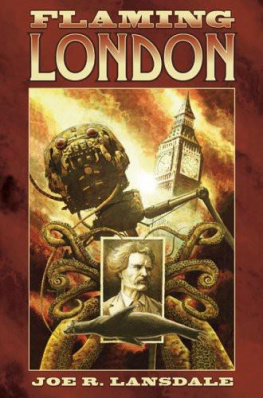
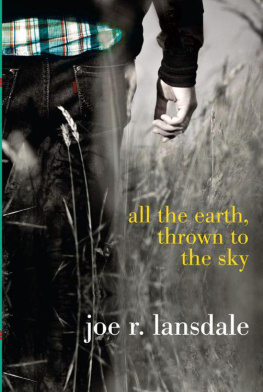
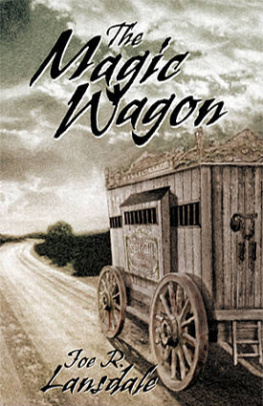
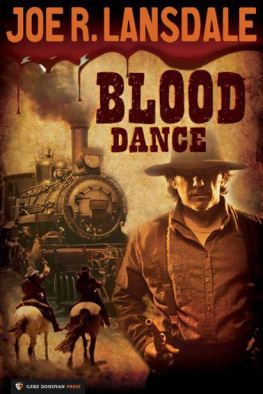
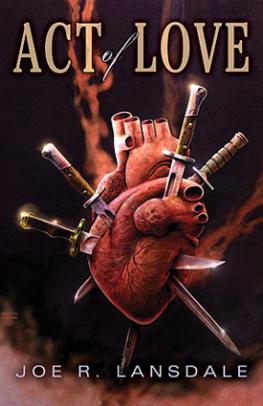
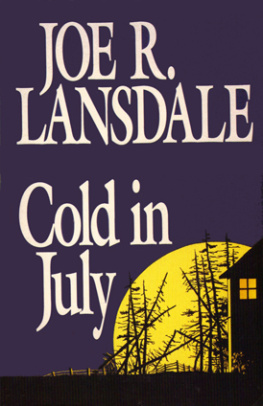

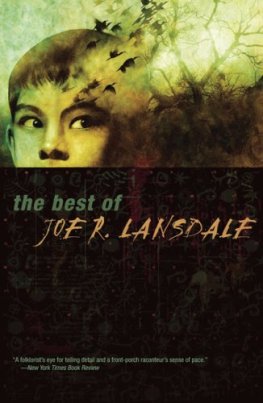
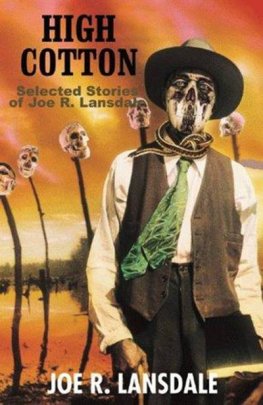

![Joe R. Lansdale - Christmas with the Dead [hc]](/uploads/posts/book/48667/thumbs/joe-r-lansdale-christmas-with-the-dead-hc.jpg)
